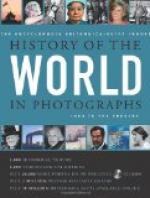From the beginning of the 16th century the fisherman’s library begins to grow apace, as, though books solely devoted to fishing are not yet frequent, works on husbandry and country pursuits almost all contain something on the subject. In Italy the fisherman and his occupation apparently were considered poetically; the word pescatore or its cognates are common on Italian 16th and 17th century title-pages, though in many instances the fulfilment of the implied promise is not adequate, from an angler’s point of view. From the pages of Bibliotheca Piscatoria a fairly long list of Italian writers could be gleaned. Among them may be mentioned Sannazaro (Piscatoria, &c., Rome, 1526) and Andrea Calmo (Rime pescatorie, Venice, 1557). A century later was Parthenius, who published a volume of Halieutica at Naples. This writer has an amusing reference to the art of “tickling” trout as practised in Britain. In Germany, as has been shown, the original little Flemish treatise had a wide vogue in the 16th century, and fishing played a part in a good many books on husbandry such as that of Conrad Heresbach (1570). Fish and fish-ponds formed the main topic of a Latin work by Dubravius (1552), while Gesner in the middle of the 16th and Aldrovandi at the beginning of the 17th centuries wrote at length on the natural history of fishes. In France the subject is less well represented, but Les Pescheries of Chris. de Gamon (Lyons, 1599) and Le Plaisir des champs of Cl. Gauchet (Paris, 1604) deserve to be noted. Les Ruses innocentes by Francois Fortin, first published at Paris in 1600, and several times in later editions, is characterized by Messrs Westwood and Satchell as “on the whole the most interesting contribution made by France to the literature of angling.” England during the most part of the 16th century was evidently well enough served by the original treatise out of The Book of St. Albans. It was republished twice by Wynkyn de Worde, six or seven times by Copland, and some five times by other printers. It was also practically republished in A Booke of Fishing by L.M. (1590). L.M. (Leonard Mascall) ranks as an angling author, but he did little more than borrow and edit the treatise. The same may be said of another version of The Book of St. Albans “now newly collected by W.G. Faulkener” and issued in 1596.
Modern Literature.—In 1600 appeared John Taverner’s Certaine Experiments concerning Fish and Fruite, and after this the period of angling literature proper begins. The Secrets of Angling (1613), by J(ohn) D(ennys). Esq., is one of the most important volumes in the angler’s library, both on account of the excellence of the verse in which it is written and also on account of its practical value. Gervase Markham, “the first journalist,” as he has been called, published his first book of husbandry at the same date, and, as in most of his




